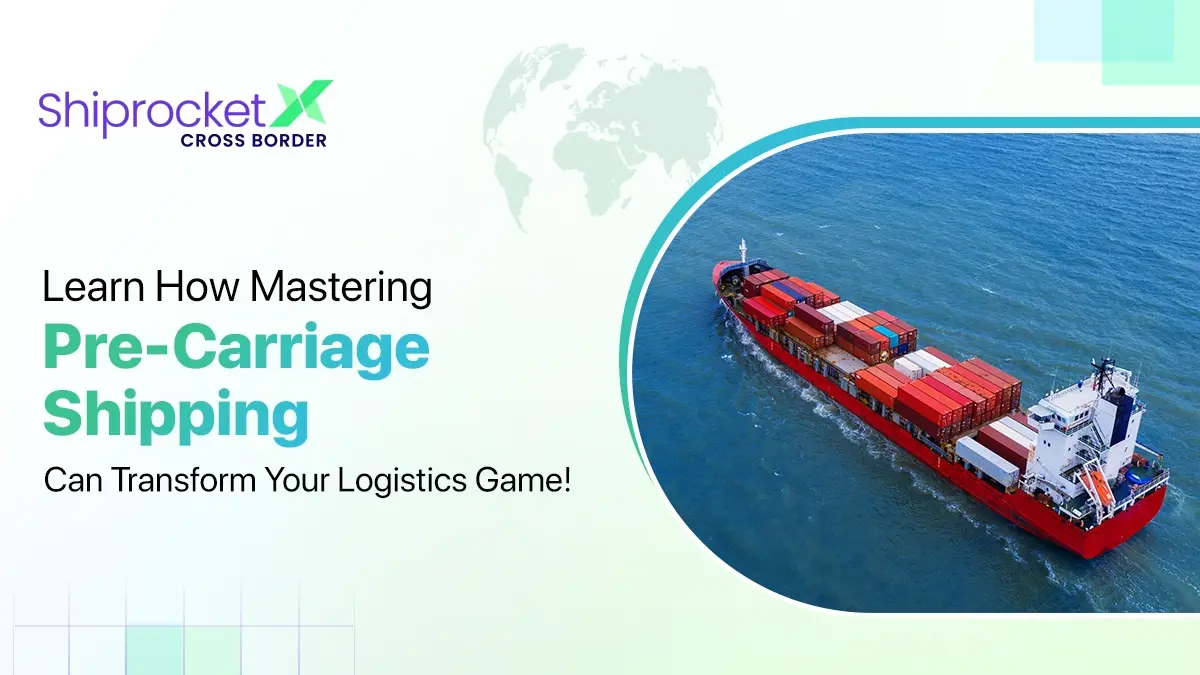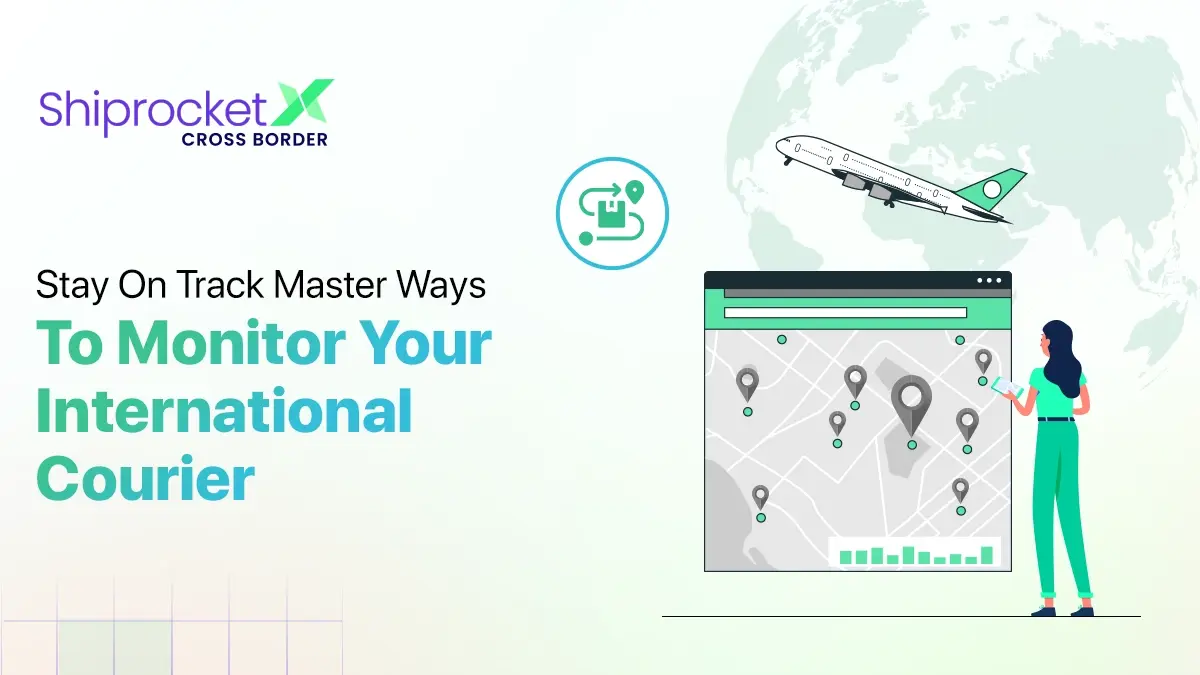Multi-Channel Selling: Overcome the Major eCommerce Challenges
Every eCommerce seller begins his journey from a single sales channel, which is either through a website or a marketplace. The end-customers, on the other hand, have diversified preferences that establish their buying behavior. Hence, it becomes essential for the sellers to sell on as many platforms as they can and resultantly, opt for multi-channel selling. However, selling on multiple channels brings forward various challenges that need to be dealt with efficiently. Read on to understand the said challenges and ways of overcoming them for the consistent growth of your eCommerce business.
What is Multi-Channel Selling?
Since end-customers are shopping on more than one platform, products also need to be sold on multiple platforms. It is this process of selling your products or services on more than a single channel.
The different kinds of channels can include your website and your shopping cart (Magento, WooCommerce, Shopify, etc.), online marketplaces (Amazon, Flipkart, eBay) and social media channels (Facebook, WhatsApp, Instagram). Besides, Brick and Mortar stores remain a resolute channel for offering products and services to your customers.
Considering the availability of various marketplaces to the customers, selling on multiple channels ensures maximization of not only your business reach but also the sales opportunity.
What is the Importance of Multi-Channel Selling?
Sell Where Your Customers Shop
Being active in multiple sales channels allows you to sell where your customers are most active. You may not get as many sales on a single sales channel as you can on all channels altogether. Also, you will benefit from having an omnipresence and reaching out to your end-customers wherever they most desire.
Discover New Marketplaces
If you have been selling online in a single marketplace, through multi-channel sales, you will get the opportunity to discover various other markets and understand the exposure they offer.
For instance, you may not get as many orders from Snapdeal as much you can get from Amazon. By selling on multiple channels, you increase your reachability and identify which marketplace is the best for your business.
Get Enhanced Interaction
Customers, in general, are not used to buying products after their very first encounter with a new brand. What they do instead is read reviews and validate whether the brand can be trusted or not.
With multi-channel selling, your customers get to recognize your brand around all the prominent sales channels, enhancing your interaction and establishing a certain level of trust in your products.
Stay Ahead of Your Peers
eCommerce allows you to create an online presence that goes parallel to the brick and mortar stores. Even if you sell on a single sales channel – you will benefit from a mitigated competition as most of your competitors won’t even know that your business exists. With multi-channel selling, you further heighten the chances of your business becoming successful via having a magnified online presence.
What are the Challenges of Multi-Channel Selling?
Juggling Multiple Sales Channels
Managing a single sales channel is significantly simpler compared to multiple sales channels. Instead of a single login – you need to manipulate through varied channels and create multiple listing and process various orders, all of it making the process a cumbersome task.
Managing Multiple Inventories
Supervising cash flow and maintaining stock is a troublesome task for many. In the case of multiple channels and resultantly, multiple inventories, the complexities double up leading to out-of-stock items or overselling.
Maintaining Brand Reliability
With an increasing number of processes, it gets harder to preserve the value and reliability of your brand. An unreliable brand image, in turn, harms the business reputation, making it difficult to restore the trust of your end-customers.
Providing Uniform Customer Experience
Order fulfilment is the ultimate goal of any supply chain. When handling multiple sales channels, it becomes essential that you process all your orders on time simultaneously on all platforms to ensure there are no delays, which can otherwise lead to an underwhelming experience for your end-customers.
Bulk Marketing
When marketing your products on multiple sales channels, you need to devise separate marketing plans for each of the channels on which you sell your products. Considering every channel brings its kind of end-customers, you need to churn out appealing ideas in bulk, warranting a lot of time and multiplication of effort as compared to promoting in a single sales channel.
Extensive Data Analysis
Assembling and interpreting data is a vital task for every eCommerce seller. It is a necessity to identify the preferences of end-customers that helps both in getting their pulse and also gain a competitive edge. Besides, data is further used to optimise the supply chain. In the case of multiple sales channels, analysing data from each sales channel demands a plethora of time and investment.
How to Overcome the Challenges of Multi-Channel Selling?
To combat the challenges mentioned above, there is only one way to do it right! Shiprocket provides an ultimate eCommerce shipping solution that encircles all the difficulties of multi-channel selling and ensures a seamless, hassle-free experience. The no.1 preference of more than 30,000 eCommerce sellers in India, Shiprocket has streamlined the complexities of selling on multiple channels in the following ways:
Multiple Channels Integrated on a Single Platform
With Shiprocket, you can effortlessly integrate and sell on the leading sales channels. Be it Amazon, Shopify, Magento, or eBay, the single-click process of integration allows you to sync all your orders in one place and avoid all possible delays. Click here to register for free and get hands-on experience on the Shiprocket panel. The Lite plan is free for everyone, regardless of you making a hundred shipments to no shipments.
Centralized Inventory for Integrated Channels
The convenience of integrating multiple selling channels allows Shiprocket’s users the advantage of streamlining their inventory. Similar to how accessible it is to juggle various marketing channels, you can easily manage your inventory within the platform. All you need to do is to upload your master inventory within the panel and fetch all orders thereon.
Use of Big Data and Artificial Intelligence
For optimizing the supply chain and ensuring a hassle-free process of shipping, Shiprocket uses an AI-backed Courier Recommendation Engine. Tackling one of the significant tasks of an eCommerce company, i.e., to select the right courier partner; our Courier Recommendation Engine considers vital metrics such as delivery time, freight rate, and customer satisfaction depending on the courier you choose and makes this decision error-free. Besides, Shiprocket is most advanced in terms of amalgamating technology for building a sustainable supply chain.
Simplified Process of Order Fulfillment
From the sale of a product till the time of its delivery, and beyond (read about Shiprocket’s game-changing Post-Ship facility), everything is smoothly carried out in one place. Shiprocket’s automated shipping solution reduces a plethora of manual shipping efforts, thus, making the process of order fulfilment as seamless as it could be. Sellers can import all orders from multiple selling channels without manually syncing their websites each time. Moreover, the automated panel allows ease of order mapping and management of undelivered orders. Click here to know more about Shiprocket’s best-in-class features.
Conclusion
Multi-channel selling is a complicated process that requires a lot of time and investment if managing on your own. Shiprocket ensures you reach new customers across all the popular channels with single-click integration and ease in controlling all your inventory from one place. You can use a list of advanced tech-based features that make the process of order creation seamless. Discover more about Shiprocket and start selling effortlessly across all marketplaces.






Enabling eCommerce Logistics and Multichannel Selling– setting up their website or selling through a marketplace . Thanks for sharing it is helpful for us.